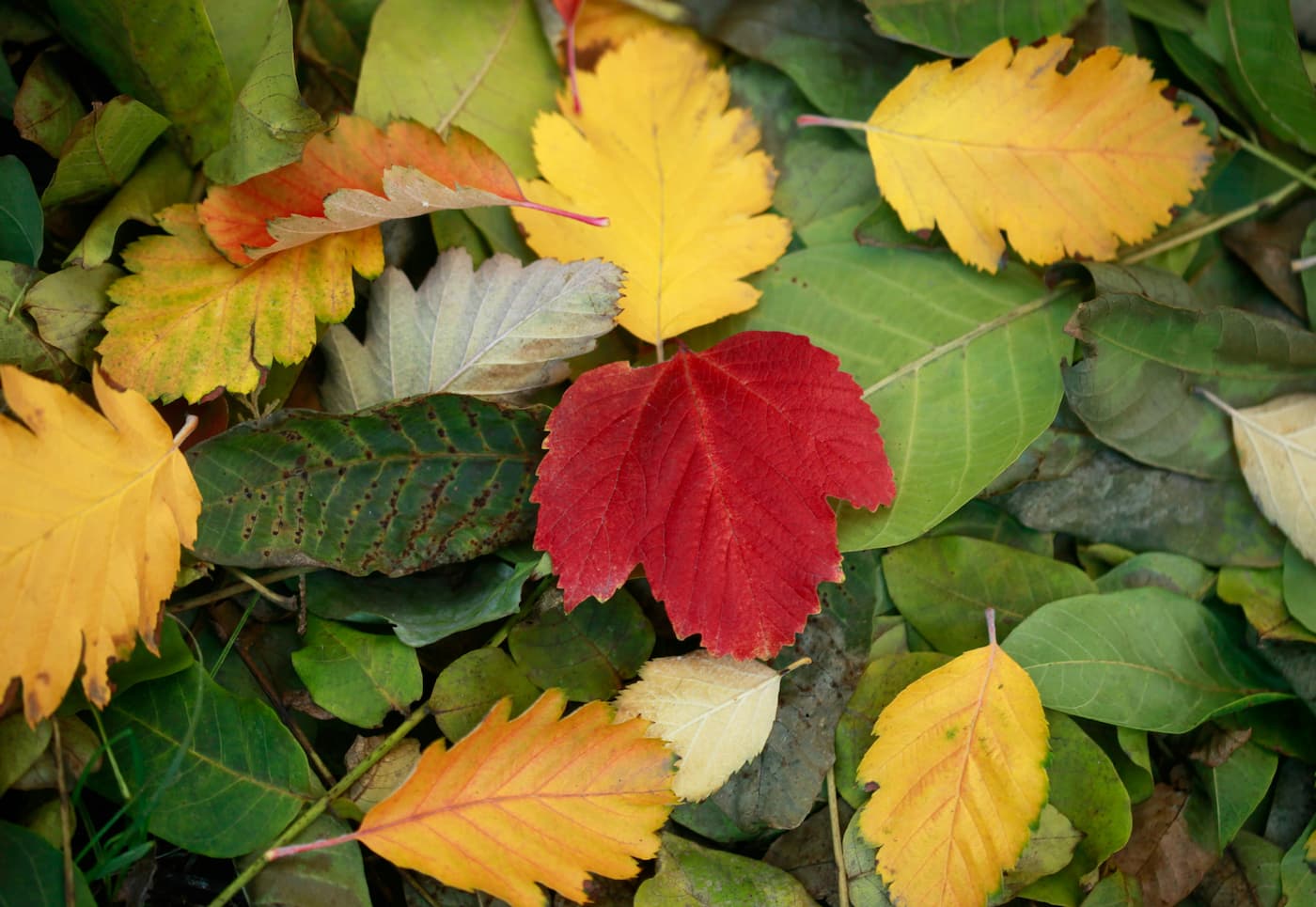
- High Country Conservation
- November 4, 2024
- Ask Eartha
Dear Eartha, with leaves on the ground and snow in the forecast, I need to get my yard ready for winter before it’s too late. What should I keep in mind when prepping my space to comfortably lay dormant during the winter?
Now that September’s golden leaves have become wintry brown, it’s time to think about safeguarding your yard’s health through the colder months. Here are a couple things to keep in mind to give your garden a head start next year.
Leaves: A Natural Resource
Leaves are a treasure trove of nutrients, containing important minerals plants need to thrive. Rather than raking and bagging them, consider mulching them directly into your lawn. If you have a lawn mower, run it over the leaves in your yard until they’re broken into dime-sized bits. By letting them decompose over the winter, you’ll enrich your soil naturally and without a lot of effort on your part. Mulching like this allows nutrients to slowly seep back into the ground, giving your yard a boost when spring arrives.
If you still need to rake, don’t toss those leaves in the trash. Summit County’s composting program loves green yard waste like leaves. The Summit County Resource Allocation Park (SCRAP) will take your green yard waste. Fees start at $10 and move up to $31 per ton. And by participating, you’re contributing to an environmentally friendly system that will ultimately help gardeners throughout our area.
Yard and Garden Preparation
Whether you have a small flower bed or a larger garden, a few strategic moves now can set your landscape up for a healthier start next year. Consider covering your lawn, shrub, and tree areas with a layer of compost to boost your soil’s health and retain moisture. For lawns and tree bases, a ½-inch layer of compost will do the trick, while garden beds benefit most from a 3-inch layer.
What kind of compost will work? Finer screened compost (¼ inch) is ideal for lawns, and ½-inch screened compost is better suited for beds. For a local resource, check out the High Country Compost available year round at the SCRAP. This locally made compost (your leaves in action!) enriches soil nutrients, improves moisture retention, and helps prevent pest issues and disease.
For Perennials and New Plantings
Winter can be tough on new plantings and perennials, so a little extra care goes a long way. A 2-inch layer of untreated, natural mulch can insulate these plants, protecting them from extreme temperatures. This simple layer helps moderate soil temperature and keeps roots shielded.
Additionally, it’s wise to give plants a deep soak once or twice a week. Although irrigation systems around the county are turned off, a little added moisture until the plants are blanketed with snow, will help them sustain throughout the winter.
Additional Best Practices for a Healthy Yard
Now that your leaves are mulched, your garden beds are composted, and your perennials are insulated, here are a few more tips to get your outdoor spaces primed for winter hibernation:
- Remove Dead Plants and Debris: Clearing dead foliage and any leftover debris will prevent pests from overwintering in your yard. This simple action can save you from battling insects in the spring.
- The Final Mow: Give your lawn a last trim before the snow falls. This prevents matting under the weight of snow, which can improve grass health in the long run.
- Pruning Trees and Shrubs: Winter is a perfect time to prune trees and shrubs, as it removes dead or diseased wood while encouraging healthy growth next season. Be mindful of proper pruning techniques to avoid harming the plants.
- Burlap or Plant Wraps: For those delicate plants that need extra warmth, consider burlap or plant wraps to shield them from cold winds, snow and frost. It’s a simple measure that makes a big difference.
- Winterize Your Irrigation System: Before temperatures drop too far, remember to turn off and blow out your irrigation system. Frozen, leaky systems are costly and waste water, but winterizing can prevent this headache entirely
A little pre-winter prep goes a long way in ensuring that your outdoor space remains healthy, beautiful, and ready to bounce back next season. By composting your leaves, mulching, and taking simple but effective steps to protect your plants, you’re helping your garden weather the winter while making a sustainable choice that benefits the whole community. Enjoy the peaceful winter knowing your yard is set up for success come spring!
Ask Eartha Steward is written by the staff at High Country Conservation Center, a nonprofit dedicated to waste reduction and resource conservation. Submit questions to Eartha at info@highcountryconservation.org.
